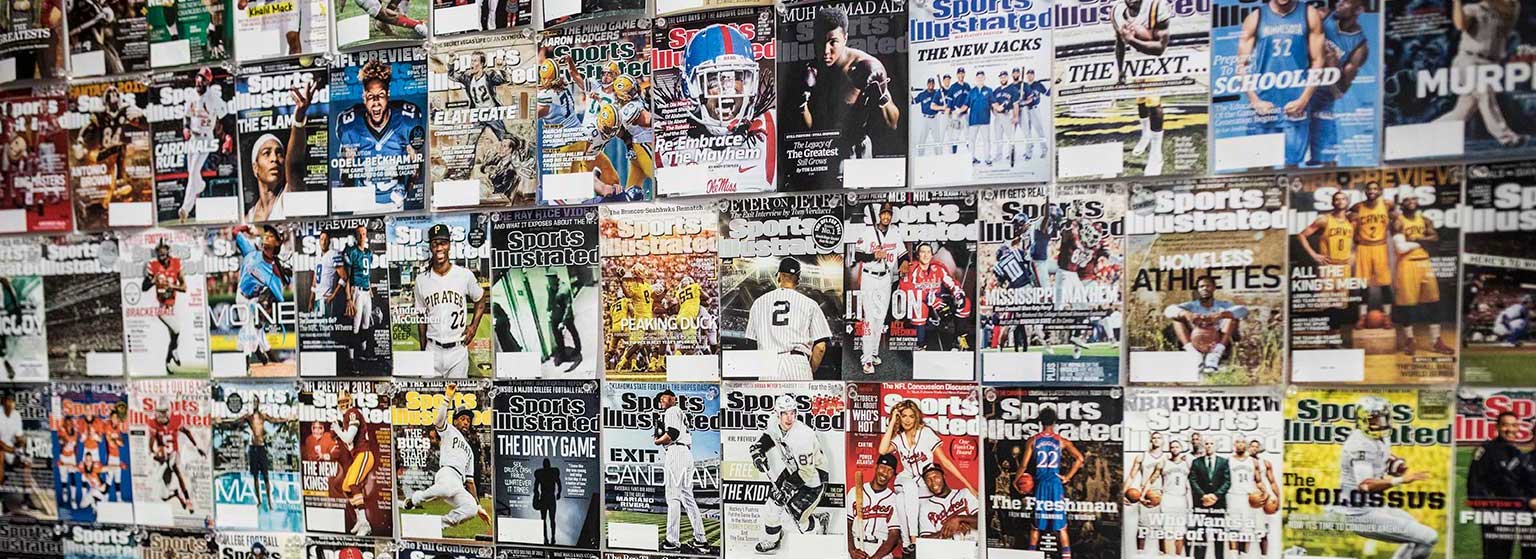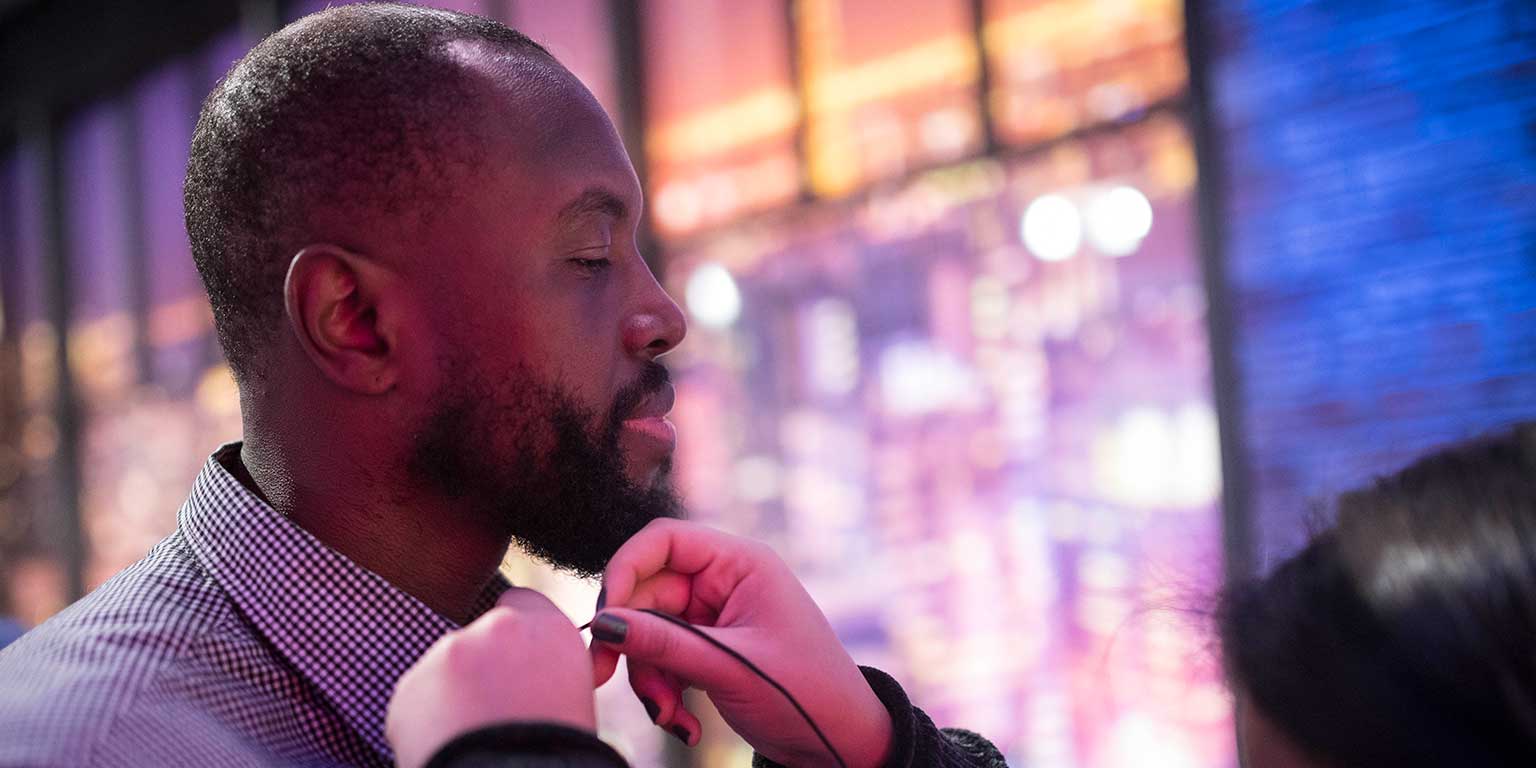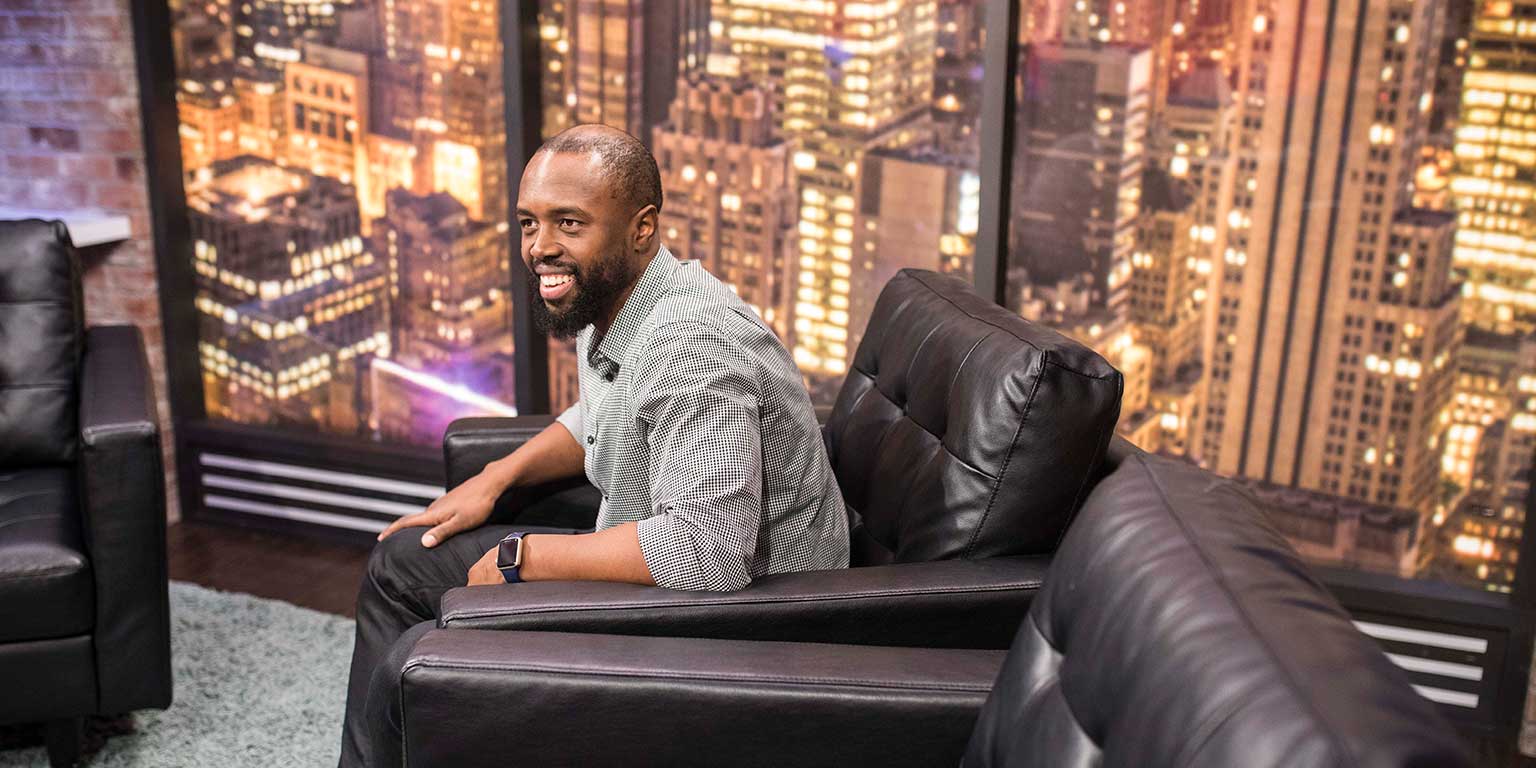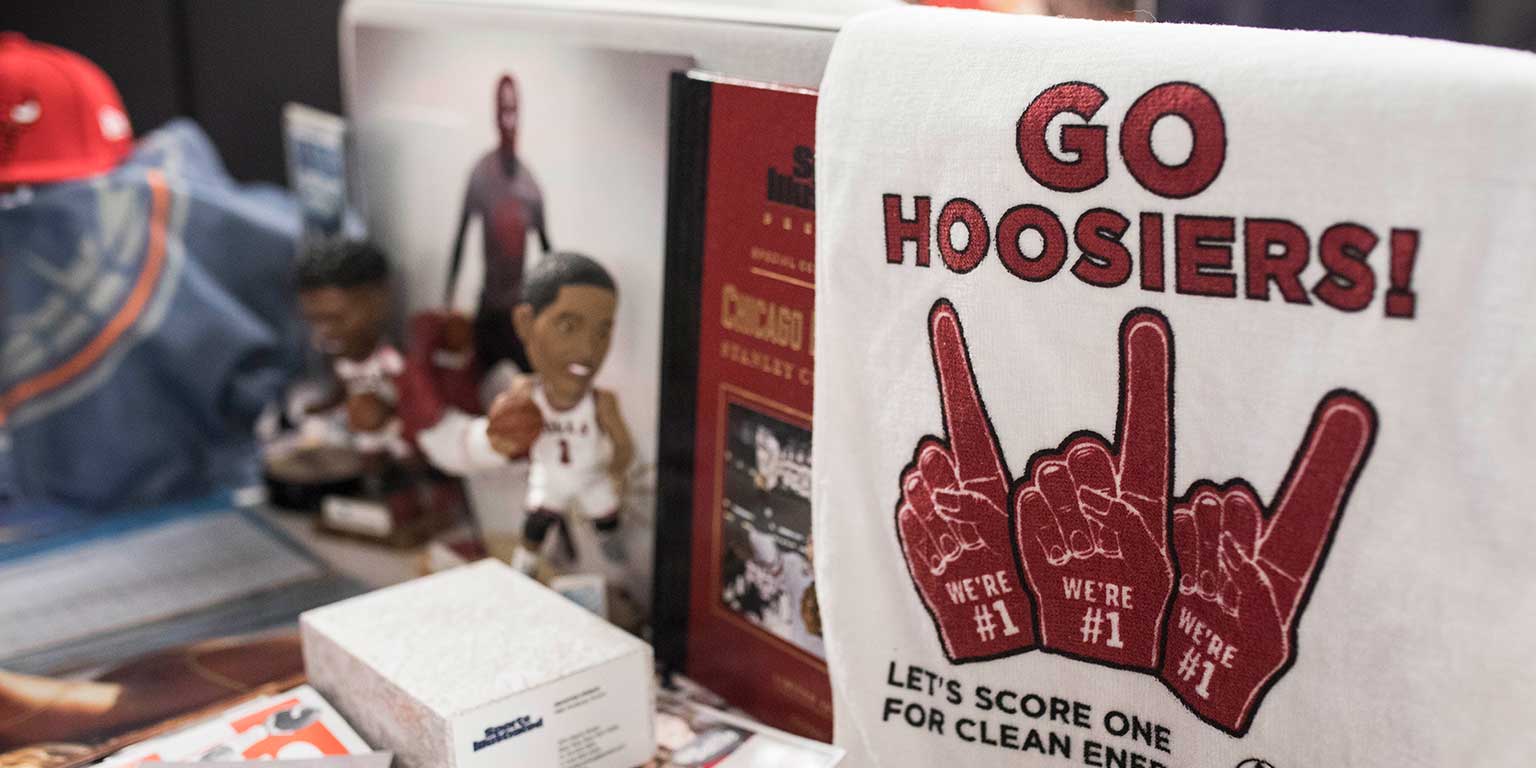In his career, DeAntae has achieved milestones about which most sports fans can only dream. While working for Sporting News in Charlotte, N.C., he interviewed Michael Jordan. More recently, he interviewed Kareem Abdul-Jabbar about sports, the current political climate, and athlete activism.
Surprisingly, current U.S. sociopolitical tensions haven’t affected DeAntae’s work as much as he expected. He attributes this relative calm to differences between the NBA and the NFL, where much of last year’s contention and activism took place, sparked by Colin Kaepernick’s kneeling during the national anthem to protest police brutality and racial injustice.
“The show of unity that the NBA decided to do was lock arms,” DeAntae says, “and the people who would be upset about the NFL taking a knee are less upset about linking arms.”
He also mentions that basketball teams have fewer members than football teams, a factor that may encourage players to interact more meaningfully and limits cliques. Meanwhile, larger football teams may allow players more opportunities to self-segregate and fewer chances for solidarity and understanding.
DeAntae is no stranger to controversial incidents in the sporting world, including at IU. He remembers a 2009 IU men’s basketball game against the University of Maryland. A major player in that game was Jin Soo Choi, Maryland’s center. While Choi, who is of South Korean descent, was at the free-throw line, IU students chanted, “U.S.A., U.S.A., U.S.A.”
“I couldn’t believe it,” DeAntae says. “These were students I was in classes with. I feel like there’s this thing where people can make jokes about certain groups without any repercussions.”
But despite unsettling memories like that one, DeAntae persisted in his love for IU.
“I’m going back to Bloomington next Saturday,” he tells me. “And I’m going to watch them play Maryland, coincidentally.”
We talk about his memories, old haunts like Nick’s and Upland Brewery, the beauty of campus, his favorite and least favorite classes. He winces, remembering an 8:00 a.m. anthropology class that led to his worst grade in college.
“I wasn’t smart enough to drop that course,” he says. “I don’t think I ever dropped a class.”
“Maybe you were just persistent,” I say.
“Sure,” he says. “I’ll call it that. I may have been foolish that first time but persistent after that.”
When I ask about other careers he might have pursued in lieu of sports journalism, DeAntae tells me more about his original career plan: law.
“Being a person of color in law enforcement, I could’ve been of good service for people like me and who look like me,” DeAntae says. “Especially with what’s been going on in the last few years, with police shooting unarmed people and not being prosecuted. Maybe in a parallel universe I’m a lawyer who helps bring people to justice.”
He knows people from his hometown who have encountered fractures in the justice system, and he wishes he could do more.
The conversation always returns to people for DeAntae: his family; the award-winning colleagues at Sports Illustrated that he manages and admires; his college friends, now scattered across the country.






